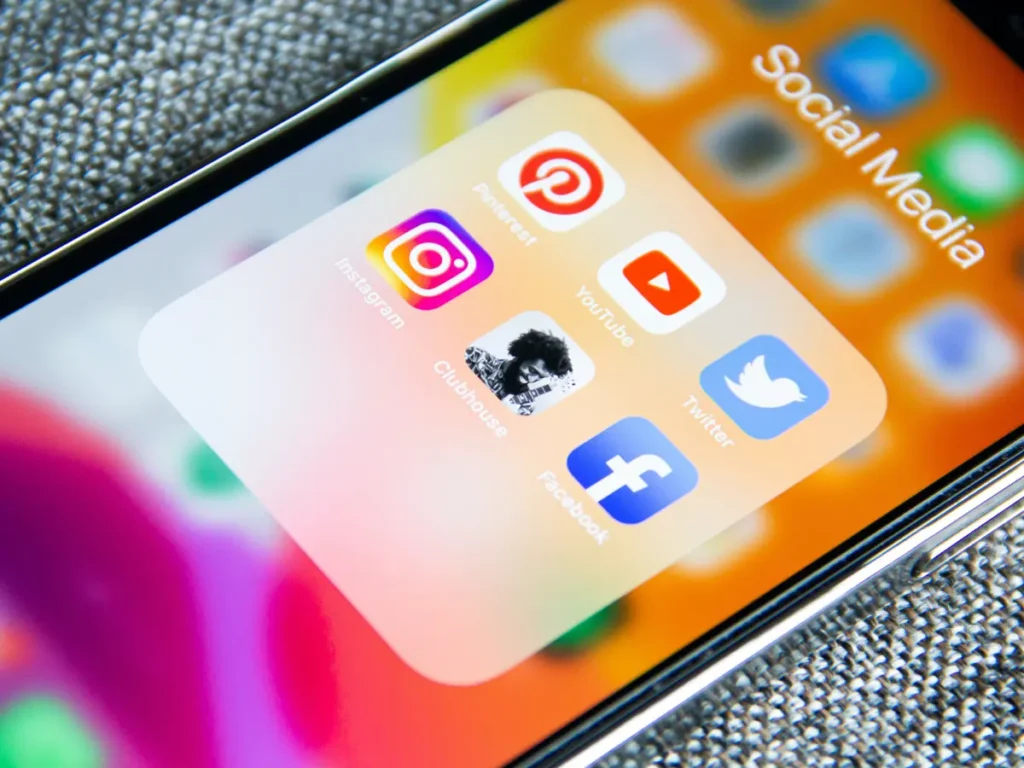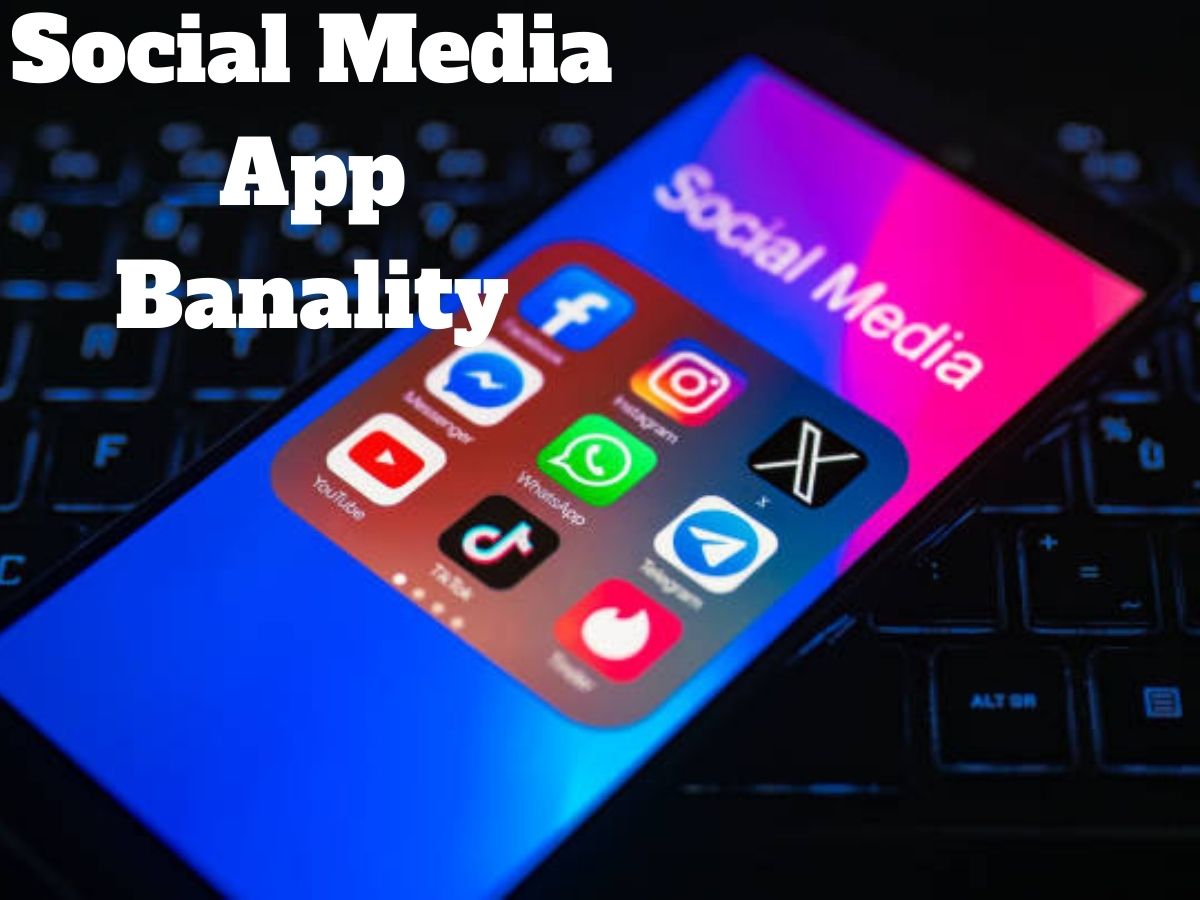In the digital age, social media has become an integral part of our daily lives, connecting people across the globe. However, the prevalence of banality on these platforms has raised concerns about its impact on our well-being and social dynamics. In this article, we delve into the various facets of how social media app banality affects our lives, exploring its psychological, social, and cultural consequences.
What is social media app banality?
Social media app banality is like when you use apps on your phone or tablet, and you see a lot of stuff that’s not really exciting or important. It’s like when your friend posts about eating a sandwich or watching TV – it’s not the coolest or most interesting thing, right? That’s what we mean by banality.
Imagine you have this big box of toys, and inside, there are a few awesome action figures and games, but there’s also a bunch of regular, not-so-exciting stuff. Social media banality is like having lots of posts in your feed that are a bit like the less exciting toys – not much fun or interesting. Instead of seeing cool videos or learning new things, you might come across a lot of everyday things that don’t really stand out.
People sometimes post these things because they want attention, like getting lots of likes or comments. But it can make social media less fun because you’re not always seeing the awesome stuff. It’s important to remember that social media can be much more enjoyable and interesting if we share things that really matter to us or that make us happy, instead of just sharing regular, everyday stuff.
The Impact Of Social Media Apps On Everyday Life:
So, let’s talk about how social media app banality can affect our lives. Imagine you have a big plate of your favorite cookies, but instead of all the yummy flavors you love, there are some plain cookies that aren’t so exciting. Social media app banality is a bit like that – it’s when we see a lot of boring and everyday stuff on our apps instead of the cool and interesting things.
When we spend too much time on social media filled with banal stuff, it can make us feel a bit blah. It’s like eating too many plain cookies – not as satisfying as the delicious ones. We might start to think that everyday things are the most important, and we forget about the really awesome and exciting parts of life. Social media banality can also make us compare ourselves to others a lot, like thinking, “Why is their life cooler than mine?” That’s not fun, right?
Now, imagine if we all shared more exciting and meaningful things on social media, like our achievements, adventures, or things that make us happy. It could make using apps more fun and help us focus on the good stuff in life. So, it’s important to be mindful of what we share and try to make social media a place for awesome and interesting things, just like having a plate full of your favorite cookies.
Impact of Social Media Apps on Mental Health:

Let’s talk about how social media apps can affect our feelings and thoughts, especially when it comes to mental health.
So, imagine you have this magical mirror, and when you look into it, you see what other people are doing. Social media is a bit like that mirror. When we use social media apps a lot, we might see pictures and posts from others that make their lives look super awesome – like they’re always having fun and everything is perfect. But guess what? Just like your mirror might not show everything, people on social media might not be sharing all their feelings or tough times.
Read Also: Education Loves All Tech: A Blueprint for Modern Learning
Sometimes, seeing all those perfect pictures can make us feel a bit sad or left out. It’s important to remember that people usually share the happy moments, not the not-so-great ones. It’s like looking at a photo album – you see the fun times, but not the moments when things were a bit tricky. So, if social media ever makes you feel down, it’s okay to take a break and focus on the things that make you happy in real life, like playing games, chatting with friends, or enjoying your hobbies.
Using social media can be like having a big playground, but it’s important to balance it with other fun activities and not let it affect how we feel about ourselves. And if you ever feel a bit overwhelmed, it’s totally cool to talk to someone you trust, like a friend, family member, or even a teacher. They can help you navigate through those feelings, just like having a friend to play with on the playground
Comparison to Our lives with the Early Generation that does not Use Social Media Apps:
Back then, imagine not having smartphones, no TikTok, and no Instagram. People couldn’t share their adventures instantly with friends all over the world. Instead, they had to wait and send letters or talk in person to share what they were up to. Life was a bit slower, but it also had a cozy feeling of face-to-face conversations and handwritten letters.
Think about playing games outside with friends – that was a big thing for them! No video games or online challenges, but they had a blast playing tag, hide and seek, and other fun stuff. Also, they read books, went on real adventures, and explored their neighborhoods without the distraction of screens.
While we have cool gadgets and instant connections with people worldwide, sometimes it’s nice to think about the simple joys of the past – like having more time for personal talks, real adventures, and outdoor games. It’s like comparing different flavors of ice cream – both are great, just different
Pros and cons of Social Media Apps:
Pros:
Social media apps are like a big playground where you can talk to friends, share cool things you’re doing, and see what others are up to. It’s a fun way to stay connected, especially if your friends live far away. You can also learn new things, like cool facts or DIY tricks from videos people share.
Cons:
Sometimes, spending too much time on these apps can make you feel a bit down. Seeing pictures of others having fun might make you think your life isn’t as cool. And hey, not everything you see is real – people usually share the happy stuff, not the tricky parts. Plus, it’s important to remember that face-to-face talks and outdoor adventures are just as awesome, if not more!
Also, social media can be a bit like a candy store – lots of yummy stuff, but too much can be not-so-great for you. Spending too many hours scrolling can take away time from playing games, reading books, or doing other fun things. So, it’s all about finding the right balance – enjoying the good things about social media without letting it take over all your playtime.
The Future of Social Media Apps:
As technology continues to evolve, so will social media apps. The future holds the promise of innovations that address the negative aspects associated with banality. Developers may prioritize creating platforms that encourage meaningful connections and prioritize mental health. Artificial intelligence and machine learning could be harnessed to filter and promote content that adds value rather than perpetuating banality.
Additionally, the future of social media apps might see a shift in user behavior, with individuals becoming more conscious of their digital consumption. The demand for platforms that prioritize authenticity and genuine interactions may drive developers to reevaluate their algorithms and design features that foster a healthier online environment.
Conclusion:
In conclusion, the impact of social media app banality on our lives is multifaceted. From influencing mental health to shaping everyday interactions, these platforms have become an inseparable part of modern society. While the drawbacks are evident, the potential for positive change and the evolution of more mindful digital engagement suggest that the future holds the key to a healthier relationship with social media. As users, being aware of the impact and advocating for a more positive online experience can contribute to a transformative shift in the way we engage with social media apps.
FAQS:
What does “social media app banality of life” mean?
Social media app banality of life refers to the repetitive and mundane nature of content and interactions on popular social media platforms. It highlights the prevalence of trivial, often superficial posts that can contribute to a culture where virtual validation and the presentation of idealized lives take precedence over authentic connections.
How does social media app banality impact our daily experiences?
The impact of social media app banality on daily life is significant. It can influence how individuals perceive themselves, their interactions with others, and their priorities. The constant exposure to banal content may lead to a shift in values, with individuals prioritizing online approval and perfection over genuine, real-world connections.
What effects does social media app banality have on mental health?
Social media app banality can have adverse effects on mental health. The constant comparison to curated and often unrealistic standards can contribute to feelings of inadequacy and anxiety. The addictive nature of these platforms, coupled with the pressure to conform, may lead to disrupted sleep patterns and heightened stress levels.
Is there a positive side to social media app usage despite the banality?
Yes, social media apps have positive aspects, such as facilitating global connectivity, information sharing, and community building. However, the prevalence of banal content poses challenges, creating a culture that prioritizes superficiality. Striking a balance between the positive and negative aspects is crucial for a healthier relationship with social media.
